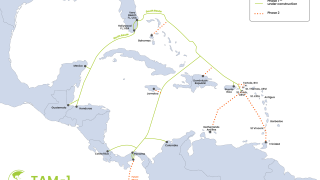The company has announced that it has filed an experimental licence application with the Federal Communications Commission (FCC) to launch, deploy, and operate two prototype satellites – KuiperSat-1 and KuiperSat-2.
Rajeev Badyal, VP of technology for Project Kuiper, said: “There is no substitute for on-orbit testing, and we expect to learn a lot given the complexity and risk of operating in such a challenging environment.”
Last week Verizon announced a deal with Amazon to use the Project Kuiper satellite network for 4G and 5G distribution.
Amazon’s competitor to OneWeb’s network and SpaceX’s Starlink aims to have 3,236 satellites in low Earth orbit (LEO), with half of the satellites in service by July 2026 and the rest by July 2029.
Amazon said Kuiper will “provide fast, affordable broadband to unserved and under-served communities around the world”.
The company described the first two satellites as “an important step in the development process”, that will allow the company “to test the communications and networking technology that will be used in our final satellite design, and help us validate launch operations and mission management procedures that will be used when deploying our full constellation”.
Badyal said: “We’ve invented lots of new technology to meet our cost and performance targets for Project Kuiper. All of the systems are testing well in simulated and lab settings, and we’ll soon be ready to see how they perform in space.”
The company announced last year that its prototype was “already delivering speeds up to 400Mbps”.
It will use a new rocket, RS1, from ABL Space Systems for at least the KuiperSat-1 and KuiperSat-2 launches.
Harry O’Hanley, CEO of ABL, said: “Amazon will play a central role in the next generation of space infrastructure, and we’re proud to have been selected as their launch partner for these critical early flights.”
Though it hasn’t committed to use ABL in the long term, Amazon said: “We have been impressed by ABL’s unique capabilities, rapid development progress, and dedication to customers, and we’re excited to add RS1 among the different launch vehicles we’ll use to deploy our satellites. We see this as just the start of a long-term relationship together and look forward to supporting ABL as they expand their business.”






